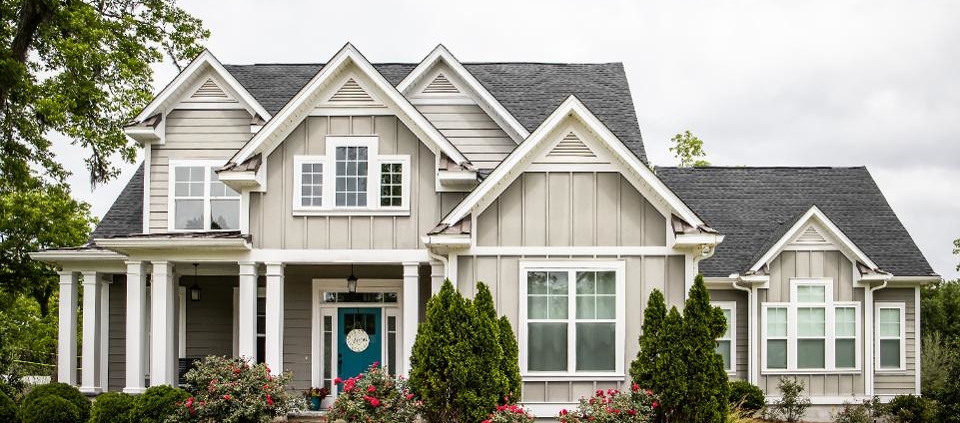Home Selling in the Age of Coronavirus
How the coronavirus is changing the way people sell homes
Australia’s last recession left the housing market more or less intact, with home prices declining only around 4% in 1990. Similarly, the financial crisis of 2008 left the market relatively unscathed – despite a 4.8% loss in 2010, the market would make gains of 2.1% and 9.3% in 2011 and 2012, respectively.
But even if history makes it look like the Australian property market is resilient in the face of economic adversity, the present novel coronavirus COVID-19 outbreak has presented this market, along with just about every other global and domestic market, with an unprecedented challenge, the scale of which the world has not seen in many decades.
New cases of this virus are cropping up all across the globe every day, with only the continent of Antarctica not yet announcing confirmed positive cases. Australia has not been spared, and at the time of writing, more than 1,700 confirmed cases have been logged in the country. To limit the spread of the novel coronavirus, the Australian government has put measures in place, including prohibiting non-essential travel and adhering to social-distancing guidelines of staying at least 1.5 m apart from other people.
It’s still difficult to say exactly what effect this highly unusual predicament will have on the Australian residential property market, as the situation is still unfolding. With social distancing becoming the preferred instance of interaction for the foreseeable future all over the world, one can assume that open house showings and home auctions – both events which see a number of people congregate in one place – will decrease. With so much uncertainty in people’s minds, it is also prudent to expect buyers’ hesitance across the Australian residential property market.
According to CoreLogic, sales activity is likely to decrease as the country grapples with containing the coronavirus pandemic as best it can, but that does not necessarily mean there will be a significant drop in the value of property. Indeed, many home sellers might want to take their chances by rather selling now, than waiting to see whether the COVID-19 outbreak and its consequences do affect the price their home fetches. That said, as people weigh their economic prospects, they might put the decision to actually acquire a home on hold.
It’s very difficult to say just how much of an effect the coronavirus outbreak will ultimately have on the Australian property market and on global markets as a whole, but for the time being, home sellers and buyers will have to keep the current conditions in mind when deciding to sell or buy a property.
How home buyers and sellers can limit their exposure
Many real estate agencies have already tried to change the way they do business in order to adhere to the social distancing guidelines and lockdown measures officially imposed by the Australian government on 23 March.
As such, a lot of real estate agents are now opting for virtual home tours and private home viewings in lieu of traditional open house viewings, which may put people at risk of contracting the coronavirus. Not only does this keep buyers and sellers safe, but it also keeps the wheels of this industry turning during a time when most prospective buyers might not want to go to open houses, even if they are held. As far as auctions are concerned, many real estate agencies have already also switched over to live-streamed auctions to keep attendance at a minimum.
Sellers’ tips
If your home is currently on the market, or you are planning to put it on the market within the next few months, speak to your real estate agent about setting up virtual tours of the property online and about private home viewings, should prospective buyers really want to see the property in person.
In this regard, ask your real estate agent to keep a detailed record of the people who come to view the property, and to ensure that they are not ill. Of course, your home should always be squeaky clean when potential buyers come to see the property, but now you should take special care to ensure your safety and the safety of the people who come to view it. Ask your real estate agent to keep their distance, and to keep hand sanitiser for themselves and potential buyers who come to view the property at the ready.
Your real estate agent will probably advise that you limit home showings in this time, but you should take care to disinfect the home thoroughly both before and after every home viewing to keep you and your family safe. Try to only allow private home viewings for serious buyers – limiting the amount of people you have in your home in a tumultuous time like this one is the responsible decision.
You’re likely to hear this from your real estate agent, too, but do keep in mind that your home might not sell as quickly now as it might have a month or two ago. These are unusual circumstances, but that doesn’t mean that you can write off securing a sale now or in the near future. All the usual rules of engagement and negotiation still apply, and you shouldn’t settle for a subpar offer just because the world is a little topsy-turvy. Ask your real estate what would be a fair asking price for your property, considering the current market conditions, and let your real estate agent handle negotiations on your behalf: this will limit the interaction you have with other people, and will allow your agent to put their selling skills on show.
Buyers’ tips
If you are looking to buy a property, the odds of picking up a property at a reasonable price may just be in your favour. However, with a recession on the cards, CoreLogic says that it expects consumer confidence to fall, causing many people to hold off on large purchases like property. While it’s still difficult to say whether it will definitely be the case, this is likely to drive home prices down within the next few months, as markets grapple with the challenges posed by the coronavirus.
Should unemployment go up as a result of lay-offs caused by the outbreak, this could cause sellers to put their property on the market at prices that are lower than they have been over the past few years. Interest rates are also at record-lows, which signalled favourable conditions for buyers before the upheaval caused by the COVID-19 outbreak.
It is still early to say so with certainty, but the next few months could be a good time to find your dream property at a price that is better than it might have been in quite a while. Still, these are early days, and CoreLogic says that there is currently no evidence of “reduced housing values”. However, should an economic recession last longer than six months, says AMP economist Shane Oliver, and should unemployment reach 10% or more, the worst-case scenario could see house prices collapse by up to 20%.
Conclusion
Is a global health crisis the best time to buy or sell a home? It is difficult to say, as this particular crisis is still unfolding. While it may seem that the upheaval could lead to a reduction in property prices – potentially making it a good time for prospective homebuyers to acquire an asset they love and might be able to afford more easily – there aren’t any current indications that this will definitely be the case.
Whether you’re looking to buy or sell property, an experienced real estate agent who has seen the ebb and fall of the property market should be by your side. Especially when conditions are uncertain, your agent will be able to advise you on a price that is fair and still renders a profit, or will be able to find a property at a price that suits you. Still looking for an accomplished captain to steer your property ship through these choppy waters? Let Perfect Agent help you find the right real estate agent today.




